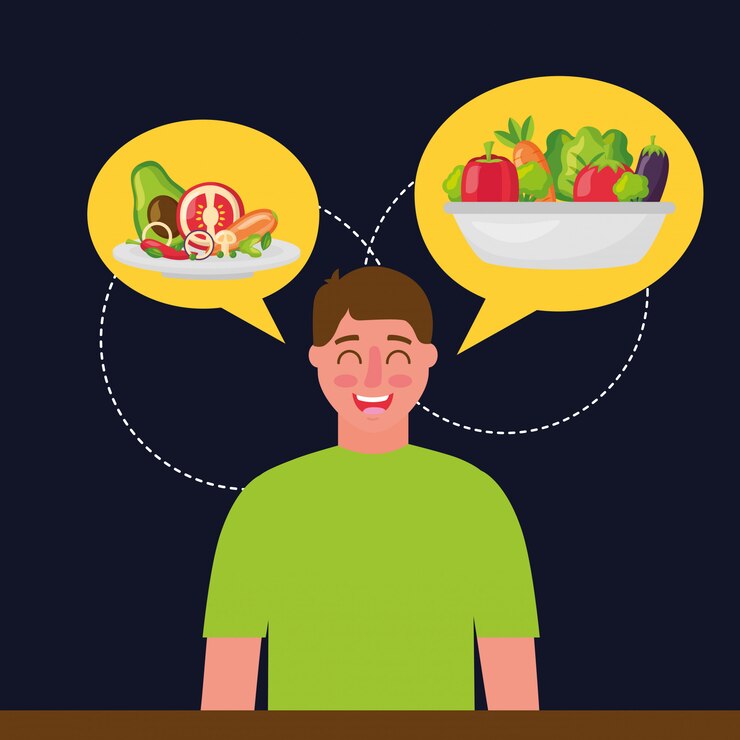Introduction
Food cravings are a common experience for many people. Whether it’s a sudden desire for something sweet, salty, or savory, cravings can be powerful and challenging to resist. While indulging occasionally is perfectly normal, constantly giving in to cravings can derail your health goals and lead to feelings of guilt and frustration. However, with the right strategies, you can learn to cope with food cravings and make healthier choices that support your well-being.
Understanding Food Cravings: Before diving into coping strategies, it’s essential to understand what drives food cravings. Cravings can be triggered by various factors, including emotional cues, hormonal fluctuations, nutrient deficiencies, and conditioned responses.
For example, stress, boredom, and sadness can all prompt cravings for comfort foods high in sugar and fat. Similarly, hormonal changes during menstruation can lead to cravings for specific foods like chocolate.
Strategies for Coping with Food Cravings:
- Mindful Eating: Practicing mindful eating can help you become more aware of your cravings and make conscious choices about what you eat. Pay attention to the sensations of hunger and fullness, as well as the taste, texture, and aroma of your food. By eating slowly and savoring each bite, you can increase satisfaction and reduce the likelihood of overeating.
- Identify Triggers: Take note of the situations, emotions, or activities that tend to trigger your cravings. Keeping a food diary can be helpful in identifying patterns and understanding the underlying reasons behind your cravings. Once you recognize your triggers, you can develop strategies to address them more effectively.
- Plan Ahead: Having a plan in place can help you avoid impulsive decisions when faced with cravings. Stock your kitchen with healthy snacks and meals that align with your dietary goals. Preparing meals in advance and carrying nutritious snacks with you can prevent you from reaching for less healthy options when hunger strikes.

- Practice Moderation: Depriving yourself of your favorite foods entirely can backfire and lead to feelings of deprivation and binge eating. Instead, practice moderation by allowing yourself to indulge in small portions of your favorite treats occasionally. Enjoying a piece of chocolate or a serving of chips in moderation can satisfy your cravings without derailing your progress.
- Distract Yourself: When cravings strike, distract yourself with activities that engage your mind and body. Go for a walk, call a friend, or immerse yourself in a hobby to take your mind off food. Engaging in activities that bring you joy and fulfillment can help reduce the intensity of cravings and make it easier to resist temptation.
- Find Healthier Alternatives: Instead of giving in to unhealthy cravings, look for healthier alternatives that satisfy your taste buds while supporting your health goals. For example, if you’re craving something sweet, reach for a piece of fruit or a small serving of dark chocolate. Experiment with nutritious ingredients to create healthier versions of your favorite comfort foods.
Conclusion
Coping with food cravings requires a combination of awareness, planning, and self-control. By understanding the underlying triggers of your cravings and implementing strategies to address them, you can make healthier choices that support your overall well-being. Remember that it’s okay to indulge occasionally, but moderation is key. With patience and practice, you can develop a balanced approach to eating that allows you to enjoy your favorite foods while staying on track towards your health goals.












